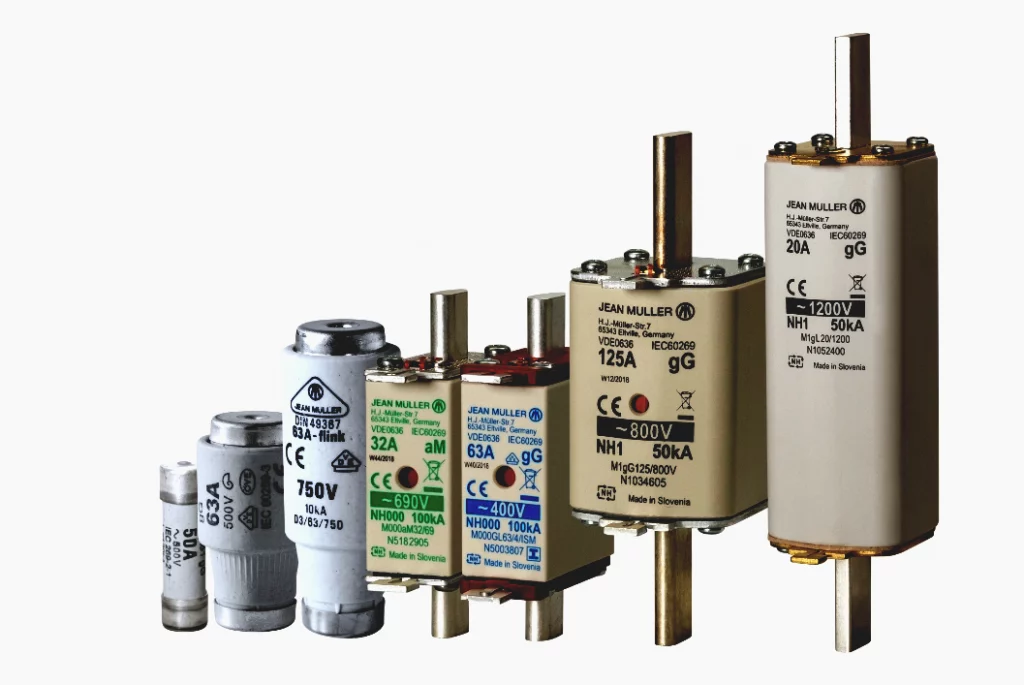Despite the advancement of re-settable circuit protection devices, fuses are here to stay. In some applications, fuses are irreplaceable particularly in high current limiting or fast fault-current interruption applications.
Fuses offer a combination of advantageous features.
- High breaking capacity or high current interrupting rating.
- Complex short-circuit calculations not required.
- Easy and inexpensive system upgrade to suit increased system fault currents.
- High current limiting.
- Fault elimination required before re-energizing circuit.
Fuses cannot be reset, fault need to be fixed before re-energizing the circuit. - Reliability.
No mechanical parts, fuse replacement ensures protection is restored to its original level. - Cost effective protection.
Compact size offers low cost overcurrent protection at high short-circuit levels. - No damage for starters and contactors (type 2 protection - IEC 60947-4-1).
Current limiting characteristics, suitable for type 2 protection in motor circuits. - Safe, silent operation.
No emission of gas, flames, arcs or other materials when clearing the highest levels of
short-circuit currents. - Easy coordination.
Standardized fuse characteristics and a high degree of current limitation ensure effective
coordination. - Standardized performance
Standard fuse-links design and manufactur ensure availability of replacements. - Improved power quality.
Fast fault current interruption minimize dips or sags in system voltage. - Tamperproof.
Fuses cannot be modified or adjusted thus preserving their level of performance and avoiding malfunction. - No maintenance.
Fuses require no maintenance, adjustments or recalibrations.
| Type | Application (characteristic) |
|---|---|
| gG | General purpose |
| gM | Motor circuit protection |
| aM | Short-circuit protection of motor circuits |
| gN | North American general purpose for conductor protection |
| gD | North American general purpose time-delay |
| aR | Semiconductor protection |
| gR, gS | Semiconductor and conductor protection |
| gU | General purpose for conductor protection |
| gL, gF, gI, gII | Former types of fuses for general purpose (replaced by gG type) |
Source: IEC 60269-5
